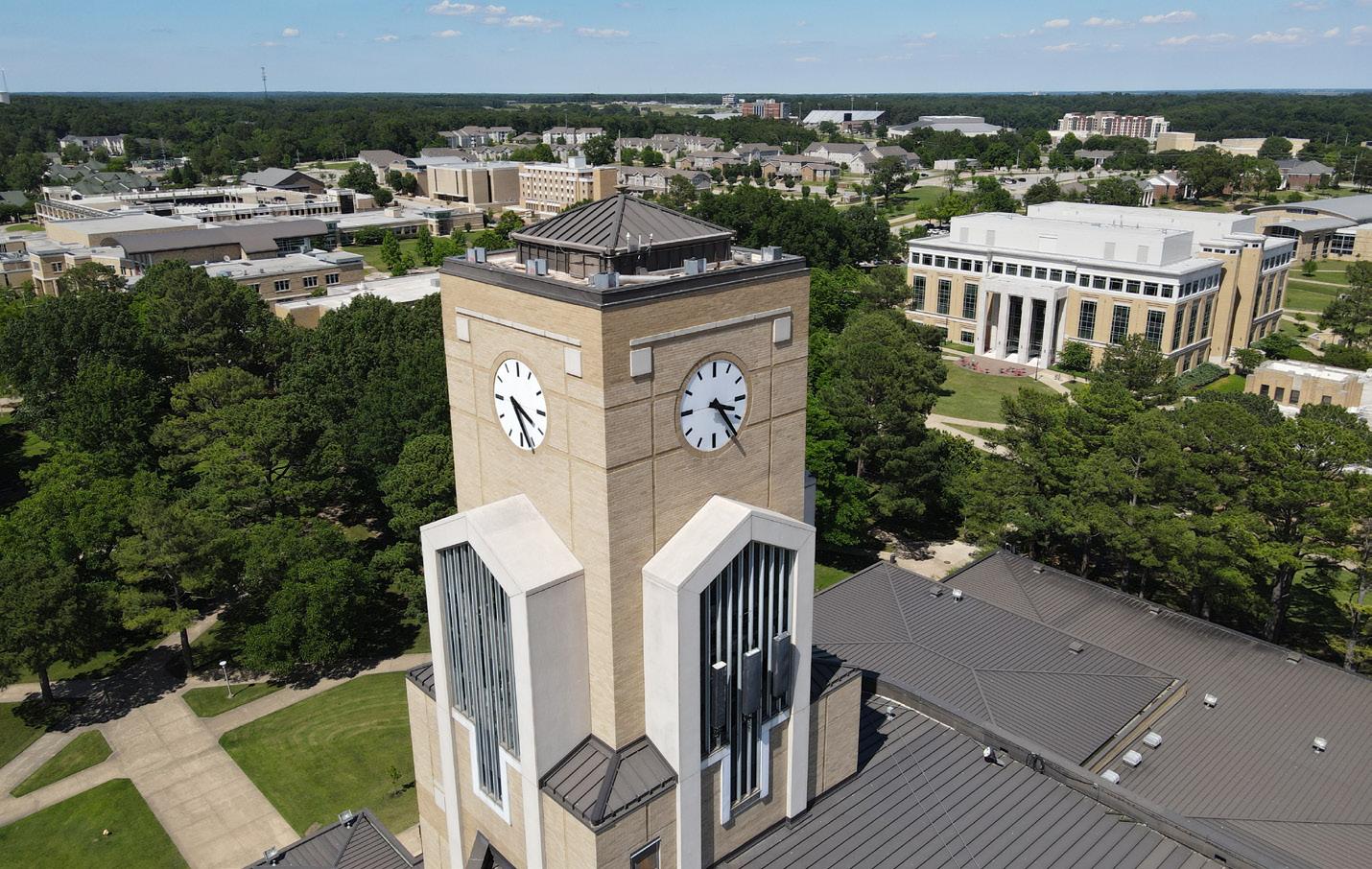

THURSDAY NOVEMBER 6, 2025
Embassy Suites
Red Wolf Convention Center
Jonesboro, Arkansas
Hosted by
Arkansas State University
Neil Griffin College of Business




THURSDAY NOVEMBER 6, 2025
Embassy Suites
Red Wolf Convention Center
Jonesboro, Arkansas
Hosted by
Arkansas State University
Neil Griffin College of Business

10 a.m. | Welcome & Opening Remarks
10:15 a.m. | Agriculture Panel Discussion, Q&A
• Matt Bell | Origami Sake
• Mickey LaTour | Arkansas State University College of Agriculture
• Wes Ward | Secretary of Agriculture, State of Arkansas
• Harvey Williams | Delta Dirt Distillery
11 a.m. | Break
11:15 a.m. | Entrepreneurship Panel Discussion, Q&A
• Amanda Herget | Gearhead Outfitters
• Eric Howerton | AdFury.ai, PodcastVideos.com & Doing Business in Bentonville
• Dave Stickler | Hybar
• Jim Washam | Arkansas State University Neil Griffin College of Business
Noon | Break & Lunch Buffet
12:30 p.m. | Regionalism Lunch & Keynote
• Graham Cobb | Paceline Strategies & Emeraude
• Todd Shields | Arkansas State University
1:15 p.m. | Break
1:30 p.m. | Infrastructure Panel Discussion, Q&A
• Marvin G. Dalla Rosa | Garver
• Jerry Halsey Jr. | Commissioner, Arkansas State Highway Commission
• Jessie Jones | Arkansas Department of Transportation
• Laura R. Landreaux | Entergy Arkansas
2:15 p.m. – 2:30 p.m. | Closing Remarks & Adjourn
Drive through Northeast Arkansas on any day and you can see progress in real time — fields producing, roads and manufacturing plants going up, new companies forming, students moving between classes and labs. At A-State, we measure progress by people and partnerships. Since I arrived, undergraduate enrollment on the Jonesboro campus has grown nearly 25% — a clear signal that students and families believe in what we are building together.
Students tell us they choose A-State for hands-on, employer-connected learning. More students means more talent on the ground and that changes the scale of what we can do with industry. We convert that demand into partnerships: faculty projects tied to real problems, paid internships, and faster match-making between open roles and graduates. Growth on campus becomes capacity for companies — more ideas moving from lab to line, more reasons to hire and expand here.
It also means sharpening what we mean by “workforce” — creating a continuum spanning skilled trades to Ph.D.s — and building more on-ramps for working adults and first-generation students to finish degrees and advance in their chosen fields. That momentum lets us focus on the work that matters most — connecting ideas, talent, and investment so today’s activity becomes tomorrow’s opportunity.
Catalyst is where we bring all of that momentum into the same room and point it at what’s next. Here’s what we’ll tackle:
This region feeds the world. From research plots to processing floors, we’re aligning classroom learning with real needs so producers can adopt new technology and workers can stack credentials for today’s jobs. We’re also backing innovation that turns Arkansas-grown crops into higher-value products — advanced food processing, new consumer goods, and expanded market uses — so more of that value is created and captured here at home. It’s the same commitment that has guided us since our beginnings as the First District Agricultural School in 1909 — and it remains fundamental to our mission.
Growth follows great infrastructure. Highway systems, engineering, energy, and construction are the backbone — the people who design systems, pour concrete, and power the manufacturing plants and neighborhoods that investment brings.
Jonesboro is a growing hub for founders in technology, real estate, steel, agriculture and the services that support both. Our role is to connect ideas with mentorship, space and capital networks — including leader-taught experiences that bring operators to campus — so burgeoning companies can become anchors for good jobs.
Big wins come when we operate as one region. Google’s investment in West Memphis broadens the types of jobs found in the regional economy. Mississippi County is the leading steel-producing county in America, drawing suppliers, logistics, and construction. Jonesboro serves as a hub, integrating talent, research, and a university willing to serve as the R&D arm for industry. Projects like the CREST Center show what’s possible when business, government, and higher education plan and execute together.
Higher education is a growth engine. A-State’s total economic impact reached $2.5 billion last year — including $480 million from university operations, student and visitor spending, and $2 billion driven by A-State alumni working across Arkansas. That activity supports more than 16,000 jobs and returns $7.10 for every $1 the state invests in our institution. Students contribute directly, spending over $68 million each year in the region — housing, healthcare, retail and services that keep local businesses strong.
Our charge is simple — provide vision, planning and strategy that move the region forward and make the case for higher education as an engine of prosperity. We do this alongside the ASU System Board of Trustees, system leadership, campus experts, the Jonesboro Regional Chamber, county leaders, regional economic development partners, and industry operators who turn ideas into internships, developing pilot programs, purchase orders, and projects on the ground. The aim is straightforward: align higher education and 21st-century workforce development with employer needs, pair faculty expertise with real-world challenges, and build experiences that keep talented graduates in Arkansas where they can help companies scale and our economy grow.
Use Catalyst to meet partners, compare notes, and leave with one or two steps you can act on within 90 days — a pilot program, a training cohort, a site visit, a research brief, or a certification program for your team. If A-State can help — with faculty expertise, student talent, or facilities — ask us. That’s why we’re here.
Thank you for investing your time, energy, and leadership in Northeast Arkansas. Together we’ll keep building a stronger, more connected, and more prosperous region.
Sincerely,

Todd Shields Chancellor, Arkansas State University

Mitch Bettis
Owner and President, Arkansas Business Publishing Group, 360 West

Mitch Bettis leads Arkansas Business Publishing Group (30+ media brands, events and marketing services) and 360 West in Fort Worth. He also serves as publisher of Arkansas Business. With more than three decades in management and publishing, Bettis builds platforms that connect decision-makers, spotlight high-performing companies, and strengthen Arkansas’s business community. He is a graduate of Ouachita Baptist University and completed graduate work at Oklahoma State University.

Heather Nelson Executive in Residence, Arkansas State University
Neil Griffin College of Business

Heather Nelson serves as the first-ever executive in residence at A-State’s Neil Griffin College of Business, where she guest lectures, mentors students, collaborates with faculty, and develops initiatives, including the Catalyst: NEA Economic Development and Leadership Forum. A renewable-energy pioneer, she co-founded Seal Solar and previously chaired the Arkansas Advanced Energy Association. Recognized as the Arkansas Business Executive of the Year in 2021, Nelson has taught at the University of Arkansas and at CIMBA in Italy, offering courses on storytelling in leadership and marketing, global consumer behavior, and global entrepreneurial strategy. Known for authenticity and visionary leadership, she empowers the next generation of entrepreneurs and leaders.

Dr. Calvin White Jr.
Provost & Executive Vice Chancellor, Arkansas State University

Dr. Calvin White Jr. is A-State’s chief academic officer, leading research growth, academic reorganization, and student-success strategies tied to regional workforce needs. Since 2023, he helped launch the state’s first College of Veterinary Medicine, advanced the Center for Advanced Materials and Steel Manufacturing (with federal support), expanded talent pipelines with ANC and ASU-Newport, and championed crossdisciplinary innovation through Windgate Hall of Art and Innovation. A historian and former University of Arkansas leader, White aligns faculty research, applied learning, and publicprivate collaboration to deliver measurable impact for Northeast Arkansas.



20,000 sq. ft. CREST Center Phase I (70,000 sq. ft. at full build)
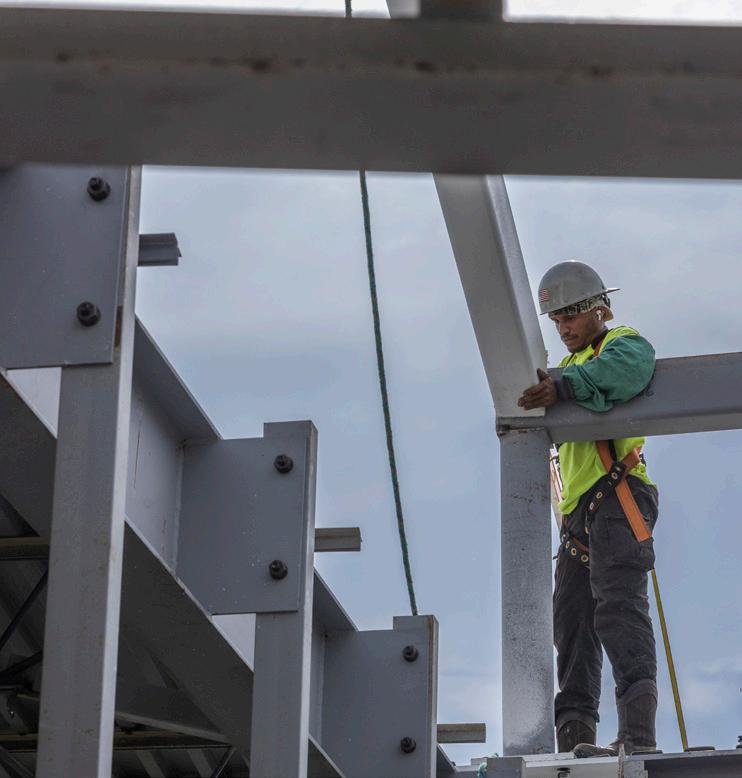
56,000 sq. ft. College of Veterinary Medicine facility
$10 million Steel Center equipment funding (AI & data-driven steelmaking)

Opening Fall 2026
4,324
Jobs supported by A-State economic activity

25,000 SnackStick365 venison sticks produced last year for food-insecure kids

$7.5 million HIRED grant supporting the CREST Center
$2.5 billion A-State’s statewide economic impact
72,000+
Alumni generating $890M in annual productivity effect
7:1
Every $1 of state investment returns $7 to Arkansas
100%

NYITCOM at A-State residency match (latest class)
60%
NYITCOM matches in Arkansas or targeted Delta states
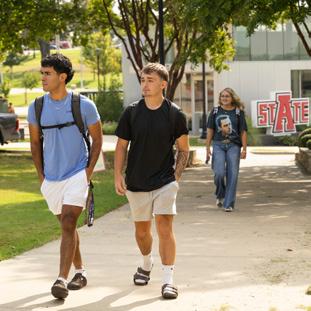
63% First-generation college students attending A-State 25% growth in A-State research spending from 2024–25 to 2025–26

Arkansas feeds the world — and increasingly earns a place at the table and behind the bar.
Arkansas State University is aligning education, research and industry to maintain this alignment. At A-State’s College of Agriculture, “Experiencing Agriculture Beyond the Classroom” guides programs so graduates solve complex problems, adopt new technologies, and communicate clearly. That promise is visible in applied initiatives where students design, test, and deliver real products for Arkansas communities and employers. In partnership with Arkansas Hunters Feeding the Hungry, students manage the full lifecycle of shelf-stable venison snack sticks for food-insecure children — from recipe development and safety testing to drying parameters, packaging and compliance at Arkansas’s first state-approved facility of its kind. They produced more than 25,000 sticks last year, and the SnackStick365 effort is expanding supply year-round by sourcing additional proteins.
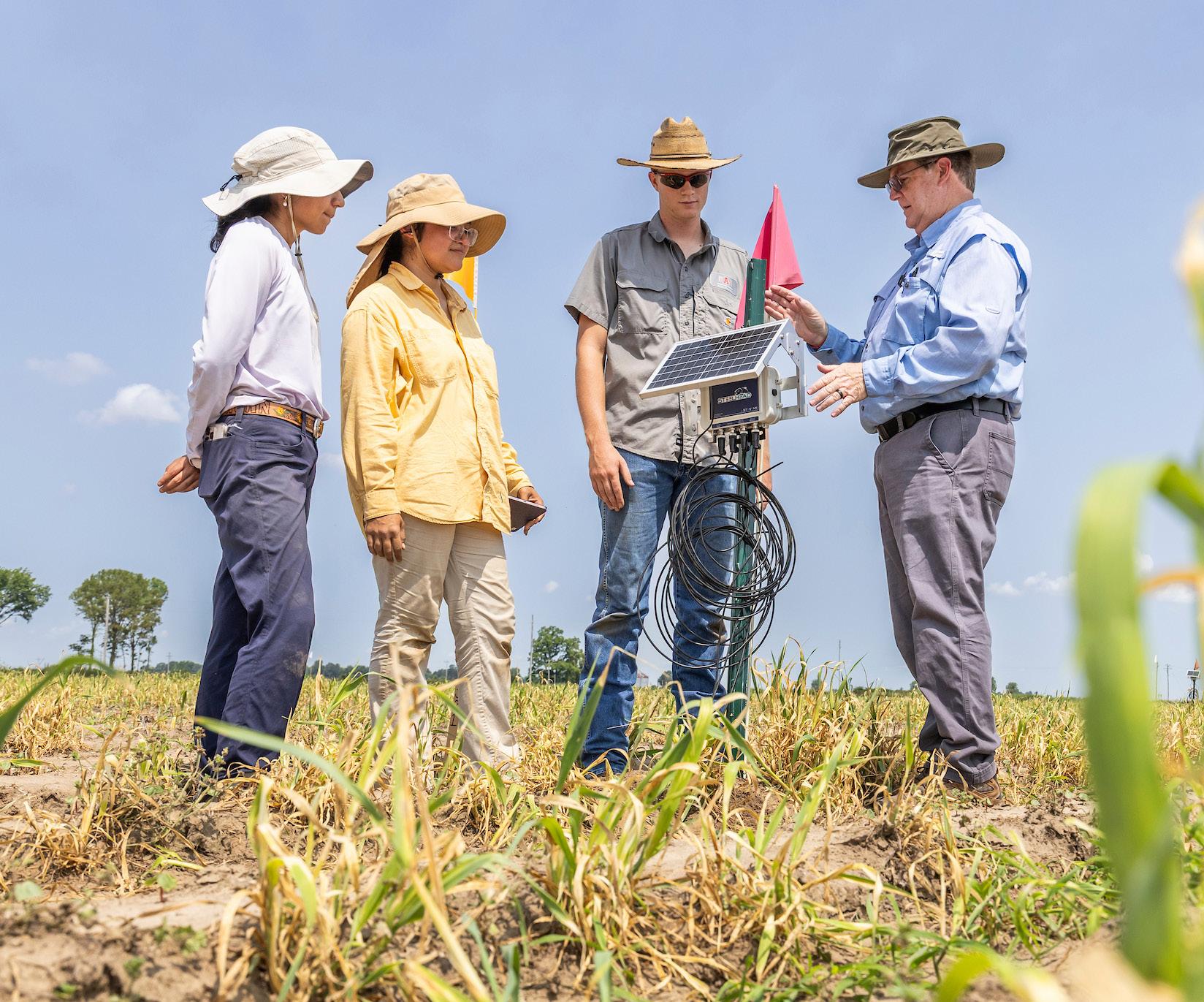
Dean Mickey Latour ties that hands-on work to a wider toolbox: research in sustainable water management, regenerative agriculture, precision farming, and crop genetics; Judd Hill and Riceland Scholars that pair students with faculty and industry mentors; the JB Penn trading platform that exposes learners to real commodity markets; and the Agriculture Academy for leadership and communication. For working adults, expanding online degree-completion options keeps talent rooted in rural communities and connected to local employers.
Across the state, entrepreneurs are turning hands-on know-how, product validation, market testing, and Arkansas-grown supply chains into momentum. In Phillips County, the Williams family’s Delta Dirt Distillery grows what it bottles on the same Delta ground their great-grandfather once sharecropped. Sweet Blend Vodka, distilled from sweet potatoes and corn, reflects four generations of reinvention and has earned top U.S. and international recognition — proof that premium brands can be built from Arkansas crops. In Little Rock, Matt Bell of Origami Sake shows how the “rice state” can also be a sake state. After years of studying the craft and assembling local capability, his team built a 100% Arkansas supply chain by partnering with growers who specialize in Japanese varieties such as koshihikari and Yamada Nishiki. They moved from test batches in 2022 to sales in mid-2023. It fits the state’s profile: Arkansas produces nearly 48% of America’s rice.
Wes Ward, Arkansas’s Secretary of Agriculture — and an Arkansas State University alumnus — bridges the gap between the university, farmers and entrepreneurs. With a statewide and international lens, he connects production realities to market opportunities and policy, aligning trade, resource stewardship, and workforce needs with the kind of applied learning A-State delivers.
The stakes are clear, Arkansas remains a leading food producer even as one in four children face food insecurity — a challenge A-State confronts with practical solutions and community partnerships. This is how Arkansas keeps feeding the world, earning its place at the table and behind the bar, with founders converting Arkansas inputs into premium products, state leadership opening markets, and A-State supplying talent, research, and problem-solving that strengthen communities across the Delta and beyond.


Arkansas entrepreneur Matt Bell leads Origami Sake, building a U.S. craft-sake cluster anchored in Arkansas-grown rice and modern production. Before Origami, he co-founded Bell-Corley Construction, Viridian, and Entegrity — ventures recognized by the Inc. 500, Entrepreneur’s Hot 100, and statewide innovation awards. A Level 1 Sake Professional, he applies a scaling playbook from energy efficiency and solar to valueadded agriculture, supply partnerships, and premium brand building. Bell’s through-line is turning homegrown ideas into durable companies that create jobs, attract investment, and showcase Arkansas.


Dr. Mickey LaTour is dean of A-State’s College of Agriculture, bringing research excellence, classroom innovation, and external partnership building. A former NIH fellow, he earned his Ph.D. and M.S. at Mississippi State, served as dean at Southern Illinois University, and was a professor at Purdue, authoring over 80 peer-reviewed publications. His expertise spans lipid physiology, meat-product quality, pet nutrition, and distance learning. At A-State, LaTour expands undergraduate research pathways, aligns programs with Delta employers, and elevates collaboration in crops, animal science, and ag business — keeping Arkansas agriculture competitive and growing.



Wes Ward is Arkansas’s third Secretary of Agriculture, first appointed in 2015 and reappointed in 2023. A Lake City native and A-State graduate, he later earned a Juris Doctor, Master of Laws in agricultural and food law, and a master’s degree in agricultural economics from the University of Arkansas. A U.S. Marine Corps Reserve officer with 25+ years of service, he has led National Association of State Departments of Agriculture and Southern Association of State Departments of Agriculture and hosted the record-setting 2025 NASDA Annual Meeting. Ward’s portfolio supports producers, opens markets, and stewards natural resources — keeping Arkansas farmers and ranchers competitive at home and abroad.
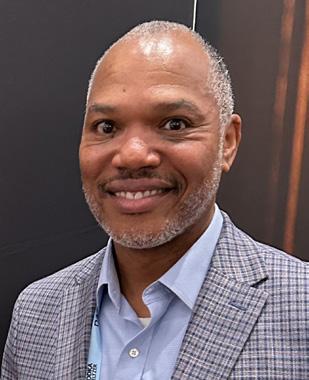
Harvey Williams Co-Founder & CEO, Delta Dirt Distillery

Harvey Williams co-founded Delta Dirt Distillery in historic downtown Helena, transforming grains and sweet potatoes from his fourthgeneration family farm into award-winning spirits. A UA Biological and Agricultural Engineering graduate with an MBA, Williams spent years with Fortune 100 food companies before launching the brand in 2017. Delta Dirt’s lineup, including Arkansas Brown and acclaimed vodkas, pairs innovation with local pride under the ethos “Raising Spirits in the Delta.” The distillery earned Arkansas’s 2023 Tourism Attraction of the Year and national recognition for quality. Williams invests in regional youth and civic groups and serves in leadership roles that advance agritourism, value-added agriculture, and Delta revitalization.


At A-State, the most valuable part of studying entrepreneurship isn’t a textbook or lecture — it’s access.
That’s the idea behind an emphasis on entrepreneurship in the Neil Griffin College of Business, including a class co-taught by Chancellor Todd Shields and Executive in Residence Heather Nelson. Each week, entrepreneurs and C-suite executives come to campus to talk plainly about how real businesses get built—funding, hiring, supply chains, brand, and complex tradeoffs—and, just as importantly, students can connect with the people making those calls.
Successful alumni entrepreneurs such as Johnny Allison, Jerry Halsey, Amanda and Ted Herget, and Eric Howerton reflect a broad footprint across finance, real estate, retail, and technology/media. Those A-State ties, and their willingness to invest in students, mean warm introductions, a real differentiator for anyone trying to succeed in business. They also point to what can grow next: more structured mentorship, class projects with operating companies, internship pipelines, and capstones tied to real-world business needs.

For graduates and area residents who do pursue entrepreneurship, the A-State Small Business and Technology Development Center (ASBTDC) offers confidential, no-cost, one-on-one consulting, market and industry research, and seminars on planning, marketing, and funding. If someone has a rough idea, ASBTDC helps turn it into a workable plan. If they’re ready to test a product or service, the team helps find customers and the numbers to support the next move.
The Delta Center for Economic Development widens that support beyond campus, coordinating A-State’s outreach to businesses, local governments, and community leaders across the region. It helps towns and companies grow capacity and reduce risk through: AR R&R recovery and resiliency work with statewide partners; the Small Town Institute for technical assistance in distressed and rural communities; the Delta Leadership Institute and 600-member Leadership Network; and Professional Education and Training that upgrades management, supervision, and technology skills with open-enrollment courses and customized, on-site consulting.
A-State treats entrepreneurship as both a venture path and a workforce edge. Not every graduate will launch a startup, but everyone benefits from the mindset this ecosystem builds: curiosity, ownership, basic finance, comfort with feedback, and the resilience to adjust. Those skills travel—to high-growth firms, family businesses, public service, and the companies that anchor the economy of Northeast Arkansas, the Delta, Arkansas, the greater Mid-South, and the world.
What sets A-State apart is how the pieces connect. Classroom frameworks meet operator experience—alumni open networks. ASBTDC supplies data and coaching that turn intent into progress. The Delta Center strengthens communities and companies so they can receive and retain growth. Cross-campus strengths, from agriculture and supply chain to engineering, computing, and the arts, let students form real teams around real problems, close to Arkansas customers and decision-makers.
Additionally, the Catalyst Innovation Center at the A-State Biosciences Institute is a campus business incubator for bioscience, engineering, and technology start-ups, providing founders with affordable workspace and access to specialized labs and equipment. Companies can tap into imaging, flow cytometry, genomics/proteomics, and cell culture labs, a radiochemicals lab, a greenhouse, and an animal care facility—an on-campus launchpad built for real R&D.
A-State’s mission is clear: help students make connections with the right people, learn what works, get started, and build here.

Amanda Herget helped grow Gearhead from one Jonesboro shop to 20+ locations across seven states via organic expansion and acquisitions (Rock/Creek, Uncle Dan’s). A former fifth-grade teacher and Race for the Cure director, she leads operations, talent development, and community partnerships that keep the brand customer-centric and locally rooted. Gearhead earned the NEA Outstanding Business of the Year (Small Business) in 2023 and continues to invest in leaders who started on the sales floor. An Arkansas State alum with B.Ed. and M.Ed. degrees, Herget co-created Project 90, a free 90-day online running program, and helps host endurance events that encourage active lifestyles
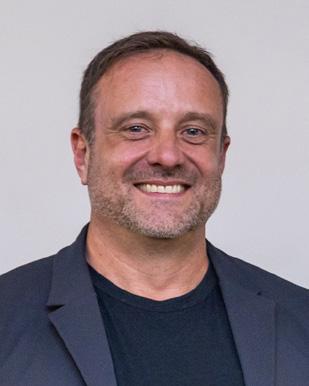
Eric Howerton Co-Founder, AdFury.ai; Founder, PodcastVideos.com & Doing Business in Bentonville

Eric Howerton is a serial entrepreneur in e-commerce, retail media, and omnichannel strategy. He co-founded AdFury.ai and founded PodcastVideos.com and Doing Business in Bentonville — platforms that help brands turn storytelling into measurable retail-media performance. Previously, he co-founded WhyteSpyder and served as chief growth officer through its acquisition by Ascential in 2021. Based in Northwest Arkansas, the A-State alum works at the intersection of content, data, and ad tech to shorten the path from idea to impact. PodcastVideos.com was named the 2025 Northwest Arkansas Small Business of the Year.


Dave Stickler leads Hybar, financed with $700 million to build a technologically advanced, environmentally sustainable scrap-recycling rebar mill in Northeast Arkansas. As senior managing partner at Global Principal Partners, he has raised and structured billions for steel projects and greenfield mini-mills across North America and Asia. He emphasizes automation, efficiency and environmental leadership — helping Big River Steel become the world’s only LEED-certified steel producer and guiding Hybar to issue the first Climate Bonds by a steelmaker. With prior Wall Street and federal experience, Stickler brings capital strategy and operational discipline to large-scale industrial buildouts.


Dr. Jim Washam has served on A-State’s finance faculty since 1989 and now leads the Neil Griffin College of Business. He has been a department chair and associate dean, and serves on the A-State Foundation Joint Committee on University Investments and the System Retirement Plan Committee. His teaching and research focus on corporate treasury and financial risk management. His work appears in national and international journals, and he contributes as a subject-matter expert for treasury texts. He also designs and delivers executive education for corporations, financial institutions, municipalities, and universities.


Regions that grow on purpose share a pattern: business, government and higher education agree on priorities, stay at the table, and execute together over the years. Northeast Arkansas has those ingredients—innovative employers, civic leadership, and a flagship university—and the work now is to line them up and continue moving in the same direction.
A-State’s role in that alignment is practical: convene partners, translate market need into curricula and credentials, connect faculty expertise to industry problems, and help communities plan for what’s next. When those roles are clear, the industry presents challenges worth solving and careers worth pursuing, public leaders remove roadblocks, and the university helps transform ideas into pilots, pilots into programs, and programs into capacity.
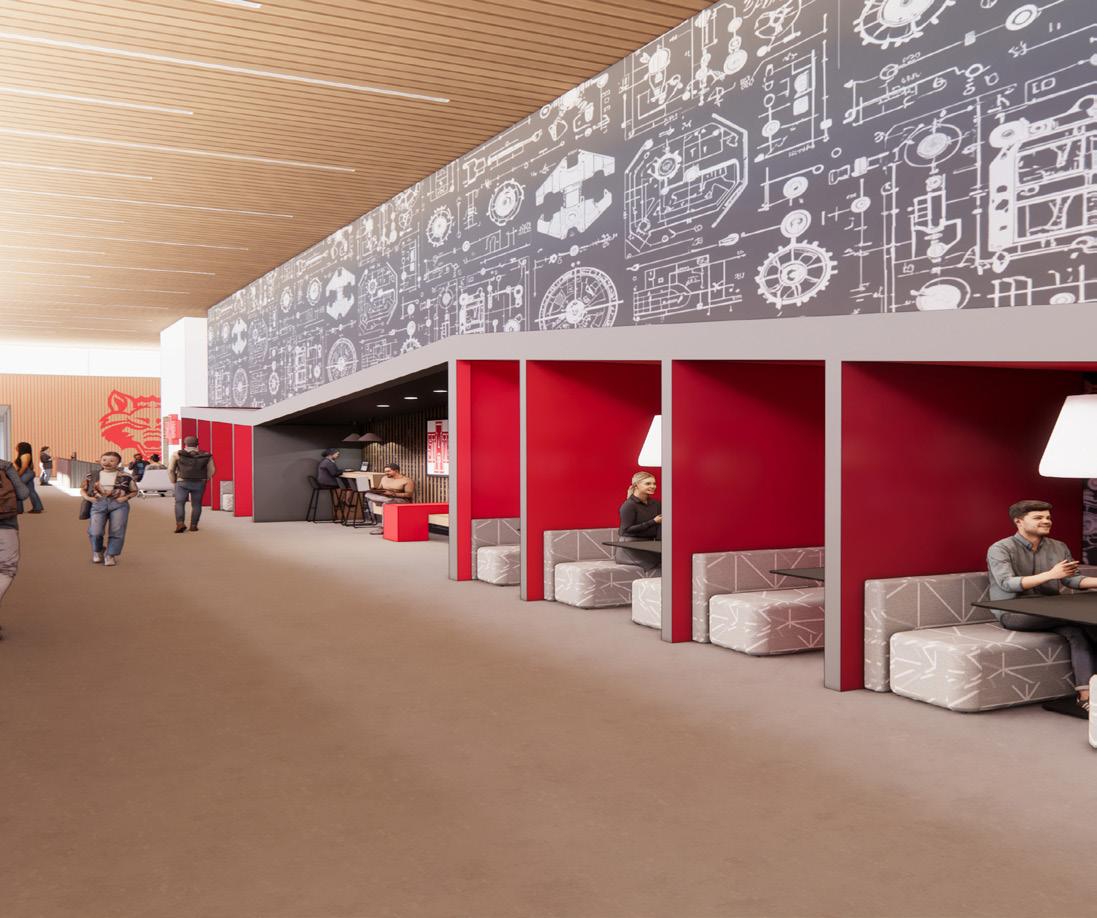
One clear example is the Career Readiness Education and Skills Training (CREST) Center. Approved by the ASU System Board of Trustees, phase one is a $10.5 million, 20,000-square-foot start on a facility designed to reach 70,000 square feet over three phases. Seeded with a $7.5 million HIRED grant from the Arkansas Department of Commerce, CREST is a partnership among Arkansas State University, ASU-Newport, and Arkansas Northeastern College to deliver job-ready talent and stackable credentials for Northeast Arkansas employers in advanced automated manufacturing, steel manufacturing, and food processing. Programming is already underway; construction is the next step—backed by county and chamber leaders who helped bring everyone to the table. It’s a template for how the region can meet growth with coordinated action.
What moves us forward next is straightforward and shared:
• Expand employer-led coalitions that pool investments in talent pipelines across counties.
• Scale regional internships and tuition assistance that support in-region careers.
• Grow short, stackable programs that braid technical skills with communication, leadership, and project management.
• Align K-12, community colleges, and the university so students can see— and seize—clear pathways.
• Target upskilling in sectors core to the region—steel and advanced manufacturing, health care, logistics, banking, and emerging fields like AI and data.
Progress requires showing up together, again and again. Chambers can convene employers around shared needs and timelines. County and city leaders can synchronize permitting, infrastructure priorities, and quality-of-place projects that help companies recruit and keep talent. Employers can open doors for jobshadowing, practicums, and capstones that translate directly into offers. And A-State can continue to map those inputs into programs that deliver results—whether that’s a new credential, a lab solving an industry problem, or a faster route for working adults to finish a degree or certification program.
This is the regional playbook: pick a few big problems, gather the right partners, assign owners, measure what matters, and repeat. With A-State acting as educator, researcher, convener and problem-solver, Northeast Arkansas can convert potential into prosperity—and make sure the gains are shared across the region for the benefit of Northeast Arkansas and the entire state.

Graham Cobb
Founder & CEO, Paceline Strategies; Managing Partner, Emeraude

Graham Cobb is a nationally recognized chamber executive and community-development strategist known for transforming legacy business organizations in Little Rock and Bentonville. As GBACC president and CEO, and previously as COO of the Little Rock Regional Chamber, he evolved marquee initiatives like the NWA Tech Summit. He led award-winning campaigns such as “Because Bentonville.” Later, at Walton Enterprises, he advanced public-affairs strategies across philanthropic and business portfolios. Today, through Paceline Strategies and Emeraude, he helps civic, non-profit, and private leaders align mission with momentum — turning intention into impact and influence.

Todd Shields Chancellor, Arkansas State University

Appointed in 2022, Dr. Todd Shields is leading transformational initiatives at A-State: establishing Arkansas’s first College of Veterinary Medicine; launching the Center for Advanced Materials and Steel Manufacturing; and advancing Windgate Hall of Art and Innovation as a cross-disciplinary space that connects art, engineering, computer science, and entrepreneurship. He is deepening regional workforce pipelines through CREST with Arkansas Northeastern College and ASU-Newport, aligning pathways from skilled trades to Ph.D.s with employer demand. Under Shields, the Jonesboro campus has grown undergraduate enrollment nearly 25%, and A-State’s annual economic impact reached $2.5 billion—$480 million from university operations, student and visitor spending, plus $2 billion from alumni activity—supporting 16,000+ jobs and returning $7.10 for every $1 of state investment. A political scientist and former dean of the Fulbright College at the University of Arkansas, Shields brings more than 30 years of higher-education leadership focused on student success, applied research, and public-private collaboration.

CREST @ A-State Career Readiness Education and Skills Training
CREST is tailored to empower both current and aspiring professionals across Northeast Arkansas by equipping them with industry-leading skills in AI-enhanced advanced manufacturing, food processing and steel production.
With programs designed to meet tomorrow’s challenges, A-State is where potential meets possibility. For more information, visit:

&
As the closest research university to steel manufacturing facilities, this center at A-State will help Arkansas compete nationally and become a leader in advanced materials research.

Arkansas is entering a once-in-a-generation infrastructure cycle. A multi-billiondollar Google data-center campus is rising in West Memphis, one of the most significant private investments in state history. A new I-55 river crossing, Kings’ Crossing, will strengthen the daily link between Arkansas and the Memphis freight hub that moves goods for the nation. For Northeast Arkansas, this is more than headline projects; it’s a reminder that our future hinges on capacity: highways and bridges, reliable power, resilient water systems, secure digital networks, and the people who can design and run them.
Arkansas State University’s College of Engineering & Computer Science is built for that assignment. With engineering and computing under one roof, students learn to treat infrastructure as an integrated system—modeling loads and flows, writing the software that monitors them, and safeguarding the networks that control them. The culture is applied and outcome-driven: industry-sponsored capstones, co-ops, and internships are embedded with DOTs, consultancies, utilities, mills, and manufacturers. There are also competitive wins that put student work on national stages—up to and including an A-State experiment selected and flown to the International Space Station.

A-State is also making targeted bets where the region is scaling fastest. The Center for Advanced Materials and Steel Manufacturing is being outfitted with $10 million in equipment and a distinctive research agenda: integrating data science and AI into metallurgical R&D and mill-operations optimization to align with the actual operations of modern electric-arc furnaces. On the workforce side, a $3 million state partnership with ASU-Newport and Arkansas Northeastern College stitches together stackable pathways—from technician credentials to bachelor’s and graduate degrees—so employers can fill immediate roles and develop future leaders from the same pipeline. It’s an intentional, broader definition of “workforce development” that includes technicians, engineers, analysts and cybersecurity professionals—collaboration at its finest.
Transportation capacity is the Delta’s lifeblood. Northeast Arkansas sits next to one of America’s most essential logistics engines in Memphis—rivers, rail, air cargo and interstates—and Kings’ Crossing will replace a 75-year-old span with a safer, larger connection that keeps freight and commuters moving. That upgrade only realizes its value if the feeders keep pace: interchanges that work, corridors that add lanes where needed, pavements that last, and work zones designed for safety and throughput. Those are precisely the problems A-State graduates are trained to solve.
Leadership matters, too. ARDOT Director Jared Wiley, an A-State civil engineering graduate and member of the college’s Alumni Academy, now sits at the table where projects are sequenced and delivered. His trajectory underscores the point: Arkansas State isn’t just supplying talent to the system; its alumni are steering it.
Energy is the other hinge. As AI workloads and advanced manufacturing grow, grid planning and reliability move to center stage. A-State is doubling down where it has clear strengths—data-enabled manufacturing, operations analytics, and cybersecurity—while pursuing deeper collaborations with utilities and regional transmission operators so classroom learning maps to grid-scale realities.
The work ahead is straightforward and complex: keep electrons flowing, freight moving, and projects permitted—on schedule and at real-world cost points. With industry-embedded research, multi-institution pathways, and alumni in decision-making chairs, Arkansas State is turning a regional moment into durable infrastructure capacity that keeps opportunity rooted in Northeast Arkansas.

Marvin G. Dalla Rosa Senior Project Manager, Garver

Marvin Dalla Rosa’s four-decade career spans drinking-water and wastewater system designs, hazardous-waste treatment design, and megaproject transportation programs. He coordinated utilities for ARDOT’s $1.8 billion Connecting Arkansas Program (31 highway projects) and leads coordination on the West Memphis Delta 77 Grade Separation, and Alabama DOT’s West Alabama Highway — its largest progressive design-build to date in the state. He previously managed Biloxi’s $365 million post-Katrina Infrastructure Repair Program, coordinating 16 design firms and numerous construction teams. Dalla Rosa serves on two National Transportation Research Board committees and on the Arkansas Academy of Civil Engineers board, bringing a program-level perspective to complex, multi-stakeholder project delivery.

Jerry Halsey Jr. President & CEO, Halsey Real Estate

Jerry Halsey Jr. leads multistate brokerage and development from offices in Jonesboro and Benton. An A-State graduate, he sold real estate through college, farmed with his father, then expanded the family business into commercial and industrial projects. He serves on the Arkansas Highway Commission and chairs the Arkansas Real Estate Commission. A NEA Board of Realtors Hall of Fame inductee, his civic service includes the Arkansas Building Authority, Jonesboro MAPC, City Youth Ministries, and the Arkansas State Police Foundation — reflecting a commitment to stewardship and regional growth.



Jessie Jones is ARDOT’s chief engineer for preconstruction, overseeing planning and delivery of large statewide programs. A registered professional engineer, she holds a bachelor’s degree in civil engineering from A-State and an master’s degree from the University of Arkansas. Since joining ARDOT in 2002, Jones has advanced through bridge, planning and research, and program management, including service as assistant chief engineer – planning. Her expertise spans consultant coordination, multimodal planning, and program governance — aligning scope, schedule and budget with community needs and long-term mobility goals.


Laura Landreaux has led Entergy Arkansas since 2018, ensuring reliable service for roughly 740,000 customers in 63 counties while driving performance, customer experience, safety, resource planning, and regulatory/public affairs. She previously served as vice president of Regulatory Affairs, finance director, and senior counsel, and earlier practiced law with Salt River Project and Quarles & Brady in Phoenix. Civically active, Landreaux serves on boards for the Arkansas State Chamber, Arkansas Research Alliance, Foundation for the Mid-South, and Easterseals Arkansas. Honors include Women in Business from the Women’s Foundation of Arkansas and Easterseals Arkansan of the Year. A Little Rock native, she earned her J.D. and B.A. from the University of Arkansas.










